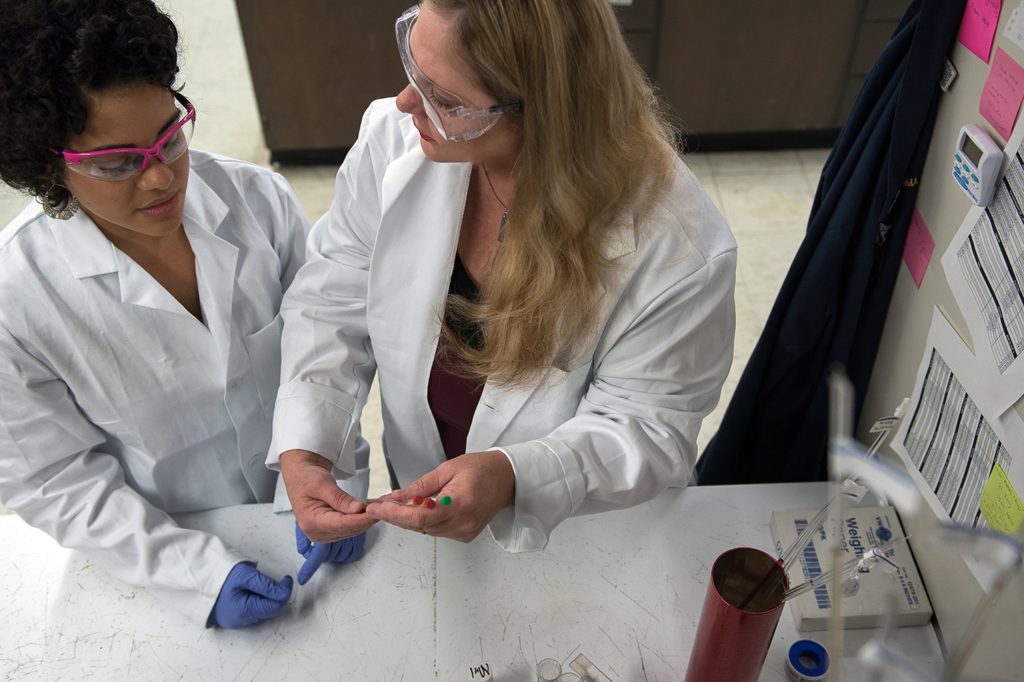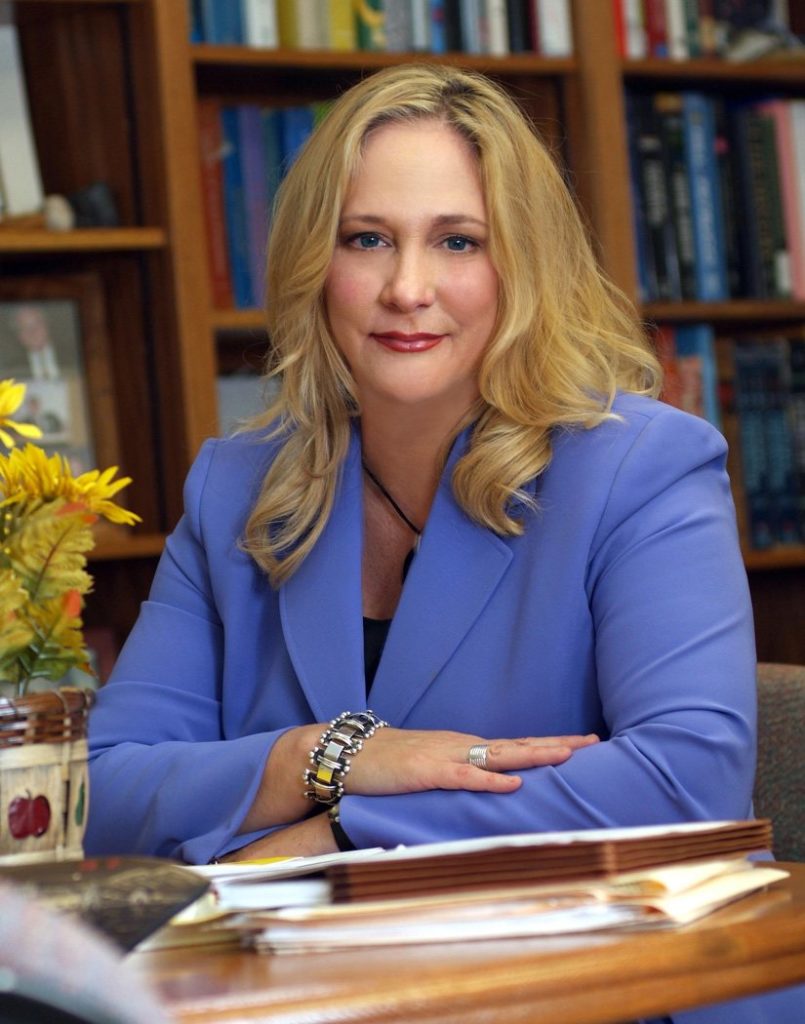
Texas A&M University Distinguished Professor of Chemistry Kim R. Dunbar has been named a 2018 Fellow of the Royal Society of Chemistry (FRSC) in recognition of her global contributions to the field of chemistry.
Dunbar, who joined the Texas A&M Department of Chemistry faculty in 1999, is an international expert in synthetic, structural and physical inorganic and bioinorganic chemistry. Her use of structure and bonding relationships to explain physical and chemical phenomena has redirected and focused the work of researchers worldwide.
In 2004, Dunbar was named a Davidson Professor of Science and currently holds the Davidson Chair in Science, meriting particular distinction as the first female chair holder in the Texas A&M College of Science. In 2007, she was named a University Distinguished Professor, Texas A&M’s highest academic faculty rank.

Achieving Royal Society Fellow status in the chemical profession denotes to the wider community a high level of accomplishment as a professional chemist, according to the organization’s website. Each Fellow must have made an outstanding contribution to the advancement of the chemical sciences; or to the advancement of the chemical sciences as a profession; or have been distinguished in the management of a chemical sciences organization. The distinction requires acceptance and adherence to a specific code of conduct and an established set of high standards of ethical and professional behavior.
An international leader in organic chemistry
Dunbar joins fellow Texas A&M chemists Sarbajit Banerjee (2016), Hongcai Joe Zhou (2015), Marcetta Y. Darensbourg (2014), Kevin Burgess (2013), Abraham Clearfield (2013), François P. Gabbaï (2013) and James D. Batteas (2012) as previous recipients of the prestigious honor.
“Kim is widely recognized as an international leader in the field of inorganic chemistry,” said Dr. Simon W. North, professor and head of Texas A&M Chemistry. “Not only has she made seminal contributions in several areas, she has an outstanding record of service to the scientific community.”
Dunbar’s research in synthetic and structural inorganic chemistry — funded by the National Science Foundation, Department of Energy, the American Chemical Society-Petroleum Research Fund and the Welch Foundation — is focused on the application of coordination chemistry principles to the solution of diverse problems ranging from new magnetic and conducting materials to anticancer agents and metal-based drugs.
In addition to the RSC, Dunbar is a fellow of the American Chemical Society (ACS), the American Institute of Chemists and the American Association for the Advancement of Science. Her many professional honors include the 2015 ACS Award for Distinguished Service in the Advancement of Inorganic Chemistry, a 2015 National Organization for the Professional Advancement of Black Chemists and Chemical Engineers (NOBCChE) President’s Award, an Alfred P. Sloan Foundation Fellowship and a Camille and Henry Dreyfus Teacher-Scholar Award. She is also a two-time recipient of the Texas A&M Association of Former Students Distinguished Achievement Award — the inaugural Graduate Mentoring Award in 2006 and another in Research in 2012. Also in 2012, Dunbar earned the first Texas A&M Women Former Students’ Network (WFSN) Eminent Scholar Award. She holds an honorary doctorate degree from her undergraduate alma mater, Westminster College in New Wilmington, Pa.
Dunbar has served since 2002 as an associate editor for the ACS journal Inorganic Chemistry and as a member of the advisory boards for Reviews in Inorganic Chemistry, Polyhedron and Comptes Rendus Chimie. In addition to the Texas A&M chapter of NOBCChE, she is a faculty advisor for the campus’ Alliance for Diversity in Science and Engineering (ADSE) chapter.
Guiding future chemists
Prior to coming to Texas A&M, Dunbar served 12 years as a faculty member at Michigan State University (1987 to 1999) after earning her Ph.D in inorganic chemistry from Purdue University in 1984 and carrying out postdoctoral research at Texas A&M under the direction of the late F. Albert Cotton (1985 to 1986).
“I am honored to have been selected to be a Fellow of the Royal Society of Chemistry,” Dunbar said. “It is important to me to help guide future chemists in their careers by supporting non-profit professional societies like the RSC and the American Chemical Society.
“The Royal Society has opened up new opportunities for me to network with colleagues through invitations to speak abroad at conferences and Royal Society Discussions. The RSC is very active in seeking input from its members and engaging them in activities aimed at showcasing emerging fields of research through their journals and meetings. They also work hard to include young scientists and students, which I really like. I am delighted to join the ranks of my esteemed Texas A&M colleagues in becoming an FRSC.”
The Royal Society of Chemistry is the world’s leading chemistry community for advancing excellence in the chemical sciences. With more than 54,000 members and a knowledge business that spans the globe, the group is the UK’s professional body for chemical scientists — a not-for-profit organization with 175 years of history and an international vision of the future that promotes, supports and celebrates chemistry while working to shape the future of the chemical sciences to benefit both science and humanity.
###
This story by Shana K. Hutchins originally appeared on the College of Science website.





